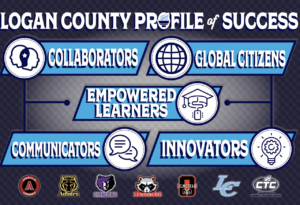Q&A: College Guidance Counseling, For Free!
By: Jaclyn Norton
College Mapper, an online college counseling service, recently launched to provide support for students and parents in the college application process. CEO Susanna Cerasuolo sets out to increase access to higher education for all people through this free service. See below for Cerasuolo’s thoughts on the current-day process of college admissions, and ever changing nature of higher education.
JN: What are the main factors you look at when matching a student with a college?
SC: There are so many factors that go into choosing colleges for each student. I like to look at that student’s learning style and needs, their previous grades and courses, their financial situation, their achievements, and their goals for college and after. I think it’s important that kids be at a college where they can be happy both academically and socially. When the college is the right fit, the student has the highest chance of success.
JN: What kinds information are parents and students lacking in the current college admissions process?
SC: I think most families don’t know the basic structure and timeline of the process, which is what I have designed on my website www.CollegeMapper.com. Many families begin to think about college during the Fall of the student’s Senior year, but there are so many things that students can and should be doing long before that–as early as freshman year. College applications themselves take a long time to complete, so starting the essays in the summer before Senior year is the very best idea.
JN: What issues are not getting the attention they deserve when transitioning from high school to college?
SC: Students need to understand that homesickness is a normal occurrence and that it is absolutely critical to get involved on campus as soon as you get there. I recommend to all of my students that they join at least two activities at college–and I tell them the gym does not count as one. You need to be actively recreating the network you have had for your whole life, that network of people who know your name. This is a great life skill, to learn to build this network, because you will likely have to do it many times again. Establishing connections and friends and a sense of belonging right away at college allows you to do your best academically. Get involved on campus! (However, don’t get over involved and hurt your GPA. No one will hire you because you were in 10 clubs. People will hire you because you learned well in your program.)
JN: What are the potential impacts free college guidance counseling may have on higher education?
SC: Making expert guidance counseling available to all kids will level the playing field in many ways, by resulting in more qualified applicants submitting stronger applications. It will also help the college completion rate because kids will choose better colleges for themselves in the the first place, instead of simply choosing a school they have heard of before, or the same school where a friend went. I hope that by providing students and parents with quality information, we can also decrease the amount of anxiety kids suffer from this process. Approximately 75% of students end up going to their first choice school, and most kids are accepted to most of the colleges they apply to, when the college list is done properly. A lot of the anxiety students and parents experience comes from not knowing what they should be doing and what they can expect to happen. I am trying to alleviate that with the free website I created.
JN: Why is college guidance counseling more important to parents and students now than in the past?
SC: I’m not sure that it wasn’t as important before, but it certainly wasn’t as difficult to get accepted in years past. As more and more students apply, and colleges aren’t getting any bigger, naturally it becomes more competitive for students to be accepted. Parents do not always realize this, especially if they are not current in their information on admissions; students, hearing from their peers at school, usually have a much more realistic grasp on the current state of admissions trends. Parents often suggest famous named schools that are way beyond a student’s GPA and test score range, simply because the parents don’t realize the reality of who gets into those schools today, and suggestions like this often have a negative affect on the students. I have seen several cases in my career (but thankfully not many) where a very top heavy college list caused very poor results for students who had little guidance. College guidance counseling avoids unrealistic expectations and shocking results like this, by guiding students and parents to make wise choices about where they apply, and then guiding them to submit the best application possible.
JN: How might guidance counseling improve access to higher education for all people?
SC: Many students don’t know that they can go to college. I am here to tell them that they can. Some students don’t know that this is a realistic goal, not some unattainable Hollywood dream that happens to other kids. For these students, it’s a matter of reaching them and inspiring them and helping them set clear, achievable goals. I am the first person from my family to go to college, so I know that it can be a very scary and foreign world. I was lucky to end up at college, and now I am trying to help all kids who need that someone to inspire them to get there, too.
JN: How can proper guidance counseling continue to benefit graduates once they have selected a college, upon entering the university?
SC: By setting realistic expectations for a college experience and by telling kids clearly how to succeed once they get there, we can help kids succeed at college. We can’t just get them there and hope for the best; this works with some kids, but others need prepping. We–teachers, mentors, counselors and parents–need to prepare them for the transition, support them through it, and encourage them to finish. We also need to clearly show them what the benefits of finishing are. People can’t easily imagine what they’ve never seen modeled, so having mentors and role models–real people in your life who believe in you and who are there for you–is really important.
JN: What kind of effects have you seen the recent changes in higher education (such as tuition increases) have on parents and students while selecting a college?
SC: With tuition increases, more and more people are looking at their state universities, so public universities are becoming more selective. And to survive the economic shifts, state universities are looking more at out of state students, which lowers the amount of in state students who can be accepted and increases the competition again. But colleges have to do this to some extent to be able to survive, to be able to pay the bills, when state and government funding is cut. It’s very tricky, from all sides. State universities are supposed to serve the state’s students, but they also need to be doing cutting edge research and garnering accolades and raising themselves in “rankings”. University administrators have many, many people to try to please. It is a very tough job. So with tuition increases in both public and private colleges, many more students are looking at in-state public schools, and those schools become tougher to get into. Parents say to me all the time, “Wow, if that’s what it takes to get into my alma mater now, I never would have made it.” This increased competition causes a trickle-down effect of increased enrollment at less competitive institutions, because of the economy and because greater numbers of students are applying to college. In our grandparents’ generation, few people went to college; in our parents’ generation, more people started to go, but it still wasn’t everyone; in our generation, it became common to go; and for today’s teens, a college education is becoming what a high school diploma used to be. We’ll see many more interesting changes in higher education in the next 50 years. Change is the only constant.







Debt Free Teen
Do they address the concern of student loans and debt at College Mapper? I feel very strongly that students should be informed as to what their actual monthly payments will be after college and what they will pay over the lifetime of the loan.
Chase
komal
i really would appreciate if some one can guide me about the whole system of college. my parents are completely clueless about the US college system. i did AS level i have no clue what should i do. please if someone can guide me through it would be really helpful.
Renata
I was accepted into ucsb but my admission was withdrawn because of my grades i gave them an explanation (will put it below) i was wondering if their is anything i could do.
Throughout my life education has been the most important aspect of my life. I have always tried to challenge myself and have taken classes that made me grow not only as a student but also as a person. I have tried to do my best in school always taking either AP or honors course all while balancing a sport. Coming from a low income family I have learned to take every opportunity I get and make the best of them. Every time I failed at something I would try again in order to improve myself. My goal in life is to be educated women who contribute to society and attending UCSB will get me closer to that goal. Yet this school year does not reflect my ethics. I tried very hard first semester, getting average grades far from what I wanted but knew I would try harder. Even though I knew AP chemistry was a hard class I took it in order to challenge myself but I failed I tried and gave it my all but my household situation made it impossible for me to give all my attention to the class I was struggling with the most. My mother was gone, she was taking care of my ill grandmother in Guatemala she stayed there for 9 months making me head of the house since my dad worked until late and my older sister was in school and would come home very rarely. My mom is a stay at home mom so when she left I was clueless. I had to cook, clean, do laundry, and take care of my cousins for nine months when before all I worried about was school, volunteering, and lacrosse. I would have to wake up early make breakfast and pack a lunch for my father then pick up my three cousins wait for the bus ad take then to school then walk to my school. I would attend school all while being tired of my hectic morning. After school I would practice, pick up my cousins take them home then go home myself, clean the house, make dinner, and wash a load of cloths. After all my household duties were done I would do my homework and finally go to sleep then start my day all over. This happened everyday for nine months. First semester ended not as I had planned but none the less I was ready to make everything better during second semester. Since I had failed AP chemistry I had to make a decision, whether I would drop the class or try and take it but I figured I would decide second semester. I had planned to go to Guatemala before the first semester had ended, but decided to stay in order to finish school. I left for Guatemala ready to see my mom after nine months and my grandmother after six years I left expecting to see my grandmother ill but able to recognize me, instead I arrived to see her lying in bed badly breathing. Imagine my impact; I was not ready to see her like that. I had not seen her in six years I remembered her strong and healthy I knew she was sick but I only talked to her once or twice since my mom left for Guatemala. Now I think that I was avoiding talking to her on purpose so I would not hear her voice getting weaker. I remember walking into her room seeing her lying in bed eyes closed breathing heavily and all I could manage to do was run out and cry. I was shocked to see the women I loved so lifeless. I had planned to come back right before winter break ended so I could go to school, but my grandmother kept getting more ill, she stopped eating and at times we could not even tell if she was still breathing. Instead of life going as planned it went the opposite. I remember waking up in my bed and seeing my mom reading a bible verse to my grandmother and feeding her through a syringe then all of a sudden I heard a terrifying gasp for air then I heard my mother cream my uncles name and all I managed to do was hide under the covers like an infant, that morning my grandmother passed away at the age of 92. I wish I could say that was the end of my nightmare put it was far from over. In my life time four other family members had passed away put I had only experienced the wake and burial but this was a completely different experience. I had to be by my mother’s side wherever she was I would go. E had to go buy the cloths she would be buried in, the things for the two day wake and arrange the mass, but worst of all we had to go to the funeral house were they would prepare her body for the wake and dress her. I did not want to go and dress my grandma for her burial but I had to be by my mother’s see so I went. Another thing that greatly affected me had to go to the commentary and watch as some workers opened my grandfather’s grave and take his casket out in order to take his remains out and move them to a smaller box so my grandmother casket would fit in with him. I remember these things every day of my life and they hurt so much. Because of this I missed a month of the second semester, I came back mid January. Since I came back so late I had no choice but to stay in my AP chemistry class. Not only was I sad but also overwhelmed because I had to catch up on the work I had missed. I came to school without enthusiasm not wanting to talk to anyone not even my teachers. for a while I pretended nothing had happened and avoided talking to my teachers I thought I could just pretend nothing had happened, I liked it like that but I had to get the work I had missed. I remember once in my AP English class while my teacher was reading the part in hamlet were he comes home to Denmark after being sent to his death by the king and hamlet is looking at men dig up the grave of his jester not being able to concentrate on the teachers explanations instead all I could think of was the men who were opening the grave of my grandfather. Images like that would come to me at random times throughout the day and I always felt like crying but I would stop myself I had to struggle to concentrate every day. For the rest of the semester I tried to get my grades up but not only could I not redo everything my classes had done while I was away I started to get depressed. There was a month I could not sleep and months all I wanted to do was sleep. Sleep became my way out it allowed me to forget everything even if it is only for a while. I loved my grandmother greatly and living through her death hurt me I know I should have gotten better grades but at the time I did not want to go back to the real world and acknowledge that what I had just lived through was real. School is my priority and I love it I am sure that if I was not in school when this all happened I would I would be in a very deep depression. I have something to look forward to, I know that I can achieve great things at UCSB and focus on my school. My grandmother will always be in my heart and I know she was proud of me. I hate that I had to go through that and that I did not do my best but I know that if I am given the chance I can be my best. Even though I was not able to pass AP chemistry and trigonometry but I hope you understand the situation I was in and allow me to attend UCSB this summer. Thank you for allowing me to explain what I had been going through and my apologies for going into so much detail but I felt I had to write what I felt.
Ashley Kunzle
I want to be able to work in a zoo one day with wildlife and someday dolphins. I want to have zoology skills and learn more about biology and aquarium biology. I do not want to take unnecessary classes such as history or art to work in a zoo. I need help I am so lost and I don't know where to start. I have only taken a few college courses which are English, Sociology, & Speech.
isaias
Hi right after high school I enrolled into a college. I took several semesters until I started failing. I dropped my classes so my GPA wouldn't be affected. I have not been in school for two years. What would be the best way to enroll,and get my financial aid back??
Kayla
What courses would need to be took in order to become a social worker ?
Jaqueline
I am a rising senior in the US but wish to study in Europe or Australia. I have only taken the ACT but not the SAT. What are some things that are needed to apply to study abroad? Also any recommendations on websites I could find college matches?
Logan G
I'm super nervous about leaving home and not having my support system with me when I go off to school. Any advice for coping while away at school?